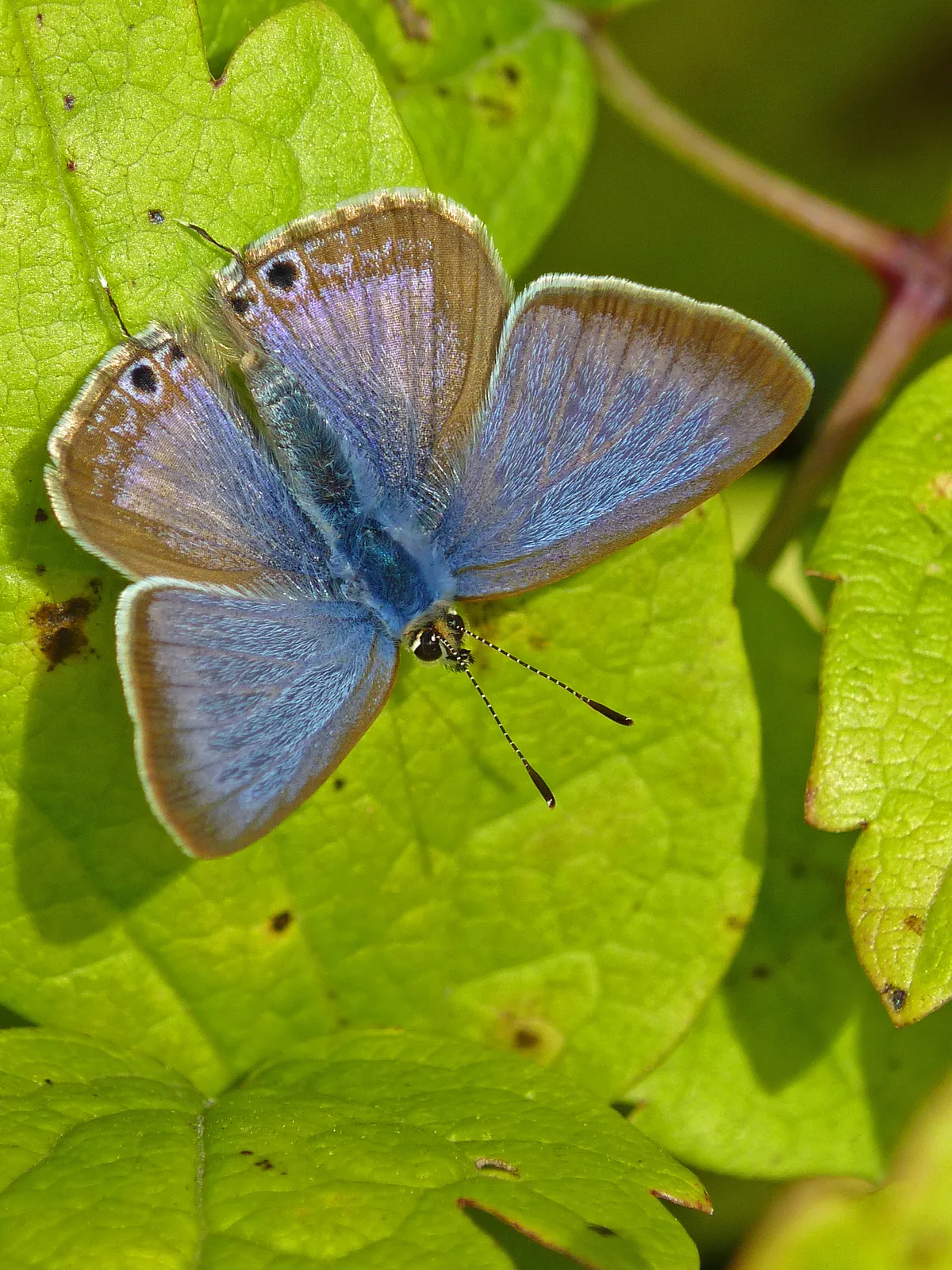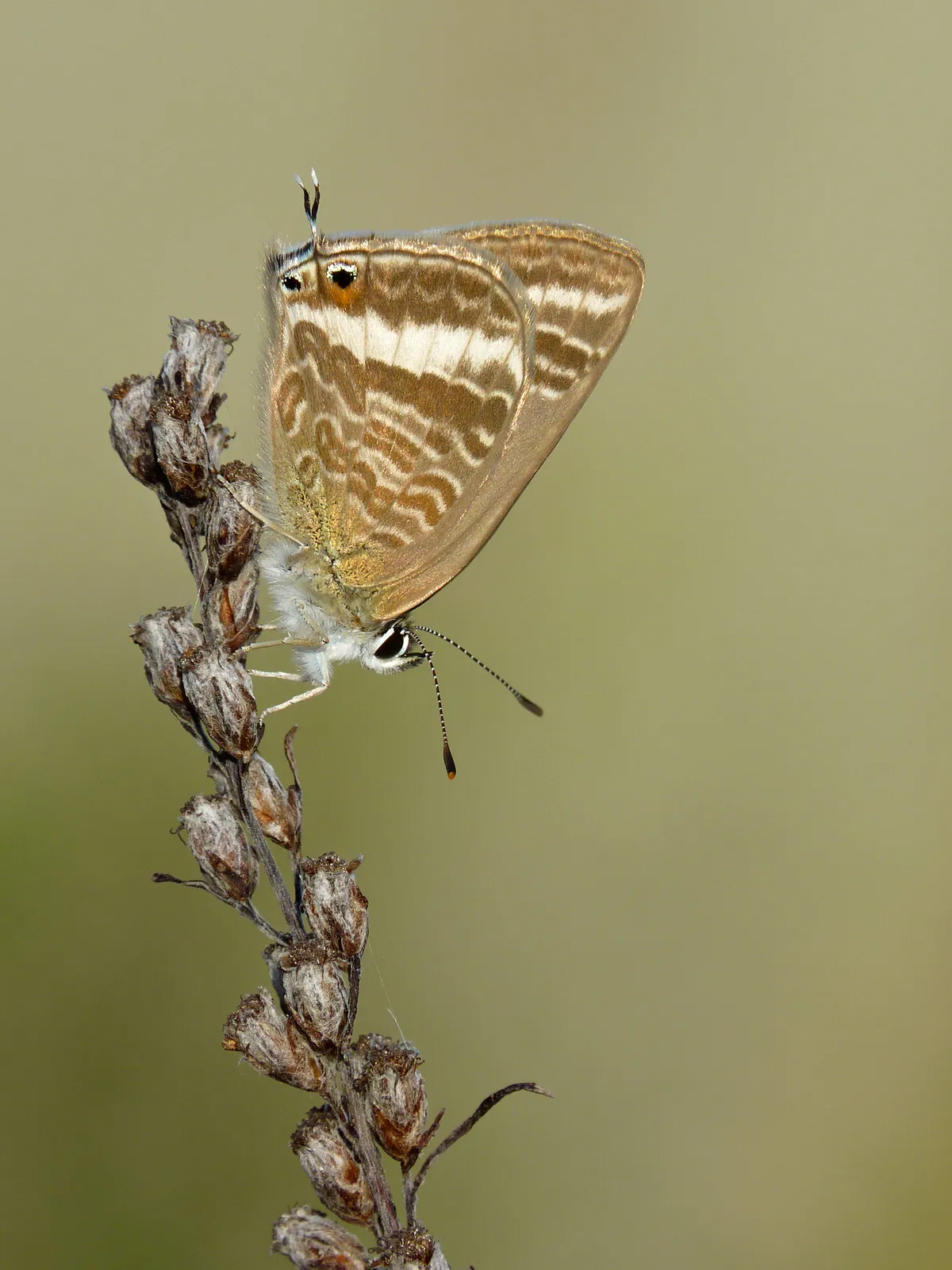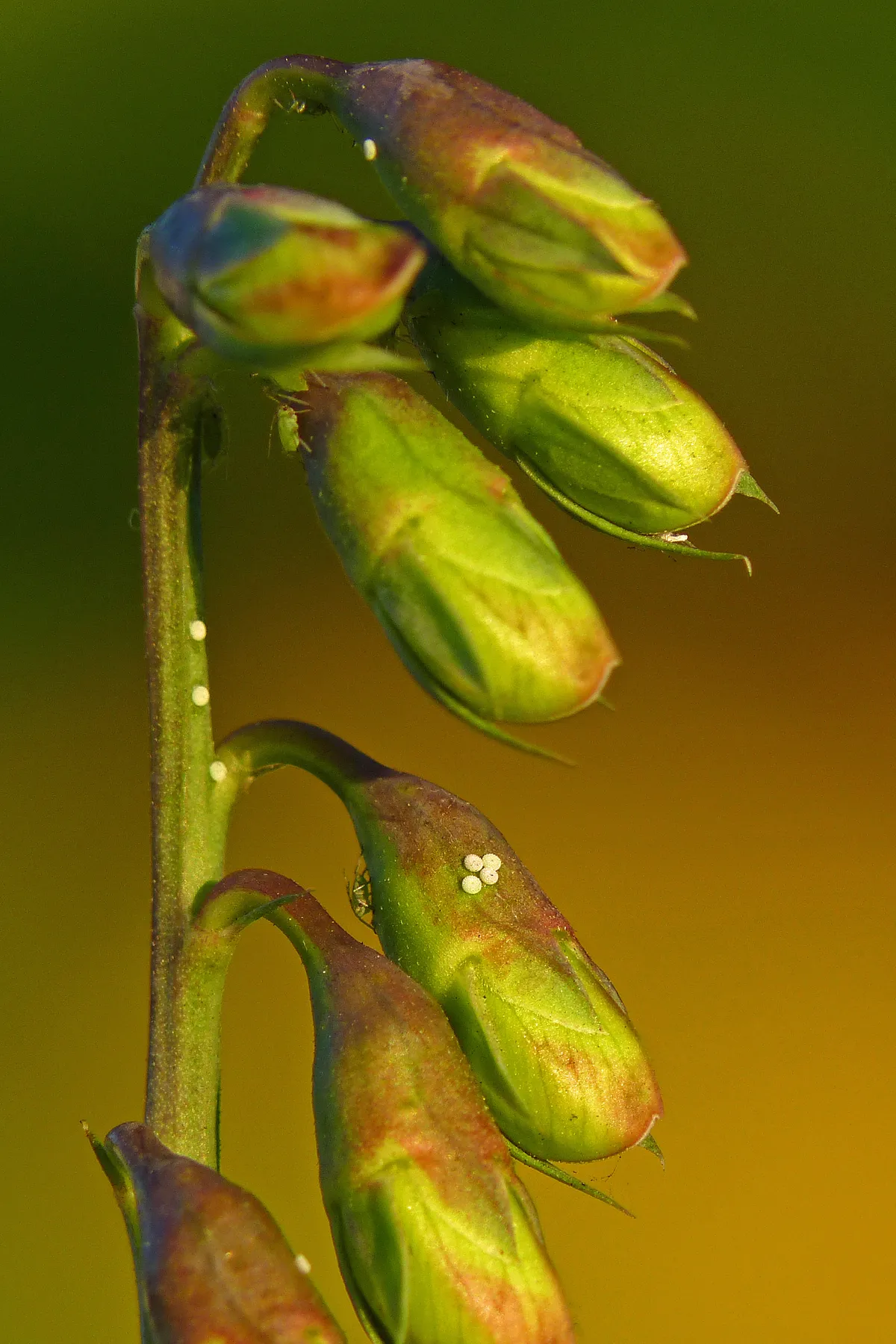Wildlife charity Butterfly Conservation reports that more than 50 long-tailed blue butterflies and hundreds of this species’ eggs have been seen across southern England, and experts believe that climate change could be the cause.
Usually only a few adults are seen each summer, having migrated from the Mediterranean, but 2019 is the third time in six years where large numbers have been seen.
“We’ve never recorded this many migrant adults before – it’s completely unprecedented,” says Neil Hulme, a Butterfly Conservation volunteer and a long-tailed blue expert. “In only a few days, I’ve found more than 100 eggs in Sussex alone and the butterfly has been seen in Cornwall, Somerset, Devon, Dorset, Hampshire, Kent and Suffolk. We’ve even had a sighting in Glamorgan in South Wales.”
The butterfly has also been seen in Surrey, for the first time in 30 years.

The long-tailed blue butterfly is common across southern Europe, Africa, Asia and Australia, and was first recorded in the UK in 1859. Only 30 individuals were seen during the next 80 years, followed by two significant influxes in 1945 and 1990.
More recently, 2013 and 2015 have been notable, with 109 sightings in 2013.
The sightings this year could also total more than 100 once the British-born offspring start emerging in September and October.

“This is one of the world’s more successful species of butterfly,” adds Hulme. “It may be small, but it’s a very powerful flyer, capable of crossing mountain ranges and seas. In hot weather it can go through its entire life cycle in just over a month, which is half the period taken by many species.”

Although this is a good year for the species, the long-tailed blue won’t be classed as a resident UK butterfly until it can survive the winter.
“However, what we’re seeing this year confirms the butterfly is extending its geographical range northwards in response to climate change – so we can look forward to seeing this beautiful little butterfly more regularly,” says Dr Dan Hoare from Butterfly Conservatuon.
“Our rapidly changing climate brings positives for some expanding species, while others may find it much harder to adapt and keep pace with the changes.”
Main image: A female long-tailed blue butterfly. © Neil Hulme/Butterfly Conservation

